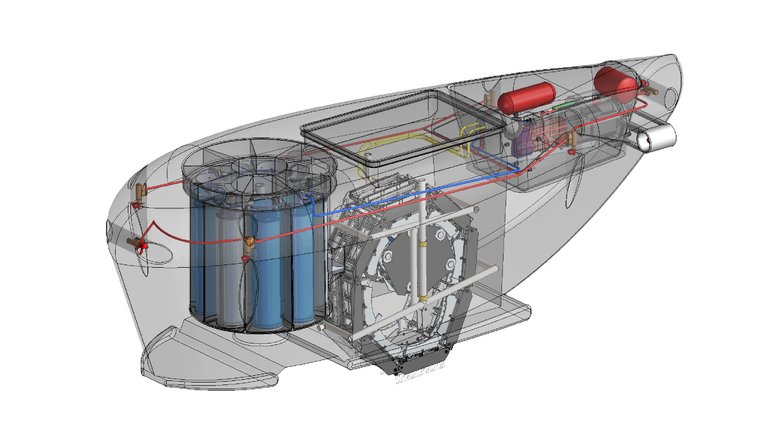
The vector of the tertiary sector’s development seems to change its direction. Who can guarantee that the purely virtual projects will keep growing in the days of such fat scandals as the one Facebook appeared in? The hidden vulnerabilities of the products having no tangible assets in their background act as a time-bomb that can explode at any moment. Those 80 billion dollars Facebook lost in the last weeks showed that the digital economy principles should be reconsidered.
The Club of Rome — a pool of the biggest world intellectuals describes what will happen in the globalized economy shortly. The core idea comes to “reincarnation” of the real sector while the financial speculations along with the other attributes of the tertiary sector start losing their appeal. The trend can hardly constitute a digital “counterrevolution” even though the newest trade wars between the US, Europe, and China relate to what we call industrial manufacturing. However, one thing is certain — whatever impressive achievements of the digital technologies sound loud, they cannot do without scientific and technological development in the real sector.
Deep Space + Deep Earth
One of the prominent entrepreneurs of nowadays who see the situation clearly is Elon Musk. His biography demonstrates a business approach atypical for the present days. Actually, Elon’s movement from an internet-based service to industrial manufacturing indirectly confirms what the Club of Rome outlines. We can call Mr. Musk a down-to-earth business person (even a “deep-down-to-earth” one taking into account the tunnels his Boring Company digs for the high-speed underground trains) since all his revolutionary products from Tesla cars to Falcon space rockets are far from such virtual ones as PayPal cashless service from which Elon started his business career.
Being a prototype of the main character in the Iron Man movie, Elon embodies quite an ambivalent image of a visionary romantic and a cold pragmatist at the same time. On the one hand, he produces solar-cell roofs to provide people with cheap energy. On the other hand, his Mars project still smells like science fiction despite some success his SpaceX achieved in building reusable launch vehicles. Nevertheless, all Elon’s activities resonate with the warnings reflected in the report of the Club of Rome.The overpopulation and scarcity of natural resources can make Earth uninhabitable in the nearest future. Both problems seem apparent, but the same is not true of the practices to overcome them.
Space is good for … Hollywood

The humans’ hijrah to the Red Planet is to start in 5–10 years, as many space romantics believe. Can that be a measure against overpopulation? It seems questionable because even the super-heavy space rockets can hardly do the trick. Those tens of thousands of Mars colonists will constitute an infinitesimal minority of the 8-billion humankind. What about the natural resources that can be extracted from both Mars and the other celestial bodies? The industrial-scale asteroid mining capable of compensating the depletion of the Earth’s resources is still remaining just a speculative topic for the audiences who stand far from both the actual space flights and the extractive industries in fact.
The exploration of space is worth appreciating in terms of the ambitious goals people are losing in the contemporary era of consumerism. Our secular humanity stops dreaming while mundane routines ruin our spirit. And Elon Musk deserves to be called a hero of postmodernity due to his unprecedented efforts to restore the lofty civilizational targets. Nevertheless, from the feasibility standpoint, the extraction of resources can correlate with exploration of space in the sci-fi movies only. Don’t people have alternatives other than Mars to explore?
Investigating neighborhood
In accordance with the professional geophysical stats, over 10 billion tons of metal constitute the mineral deposits available on the ocean bottom. Moreover, they are generated in the form of the so-called ferromanganese nodules annually! This fact contradicts such a common misconception that extractibles belong to non-renewable resources. Hence, people can retrieve something more valuable than plastic waste from the seas and oceans. Many may question the significance of the above-mentioned amount — who knows whether 10 billion tons sound sufficient on the global scale. In fact, this is many times larger than on-shore mineral reserves. For example, the deposits of oceanic cobalt exceed its on-shore analogs about 55-fold. And we don’t need to travel millions of miles through space to reach them.

Why?
If so, some may ask, why nobody mines those oceanic deposits then. This legitimate question can have multiple answers:
First of all, the humanity has not reached the red line yet when the on-shore resources are totally depleted affecting the global economy. As people say, we are waiting for the flood to start building the ark.
The agenda of the current post-industrial economy was focusing on financial speculations along with the tertiary sector’s development until recently. In addition, the obsolete capitalistic paradigm acting under the “homo homini lupus” motto encourages entrepreneurs to spend less and earn more. Such an approach to natural resources implies little to no concern for succeeding generations. And this is what the Club of Rome fiercely criticizes, by the way.
Although the deep-water technologies are available, they belong to either purely scientific or military purposes most of all. Besides, the public opinion fueled by various sci-fi narratives makes people appreciate multi-billion investment into Mars exploration rather than pragmatic investigation of the ocean bottom deposits.
All in good time, as they say. A steam engine was invented in the 4th century in Rome Empire. However, the mass adoption of such a technology started 14 centuries later approximately. Why? Roman Civilization was not ready for a technological leap at the time. The deep-sea mining just so happens to be relevant to the present society of the 21st century.
Deep waters: extractive industry 2.0
Both Elon Musk and NASA can hardly refuse their Mars exploration programmes. And that’s awesome. At least people know who cares about their future even though it refers to pure futurology, in fact. The thing is that nobody is able to figure out even an approximate feasibility of such epic projects as Mars exploration or asteroid mining today. It seems the global society will have to absorb the costs of sending people to deep space on a pro bono basis.
The situation with ocean mining is absolutely different. Both the return on investment and exact timeline are thoroughly calculated. The required deep-water technologies are far from science fiction. The location of rich ocean deposits, estimated volume of extraction, dedicated regulatory frameworks, security and ecology concerns, engineering and human resources all are well-known to the initiators of ocean mining. Hence, another version of the extractive industry 2.0 is ready to go out into the world. And still something is missing.
The acknowledgement of a worldwide audience is what the project probably lacks. An aggressive promotion of sustainable ocean mining should address everyone who is not indifferent to the future of humanity. Values change over time, but the commercial feasibility is to remain a major focus of attention for the progressive thinkers and far-sighted investors. This is what we will emphasize in our subsequent posts dedicated to various aspects of the extractive industry 2.0 in general and ocean mining in particular.
https://www.facebook.com/Extractive-Industry-20-1036416526523302/

Hi! I am a robot. I just upvoted you! I found similar content that readers might be interested in:
https://medium.com/@rokos2009/strategic-feasibility-mars-vs-ocean-f284ba096869
Congratulations @kryptonocean! You have completed some achievement on Steemit and have been rewarded with new badge(s) :
Click on any badge to view your own Board of Honor on SteemitBoard.
For more information about SteemitBoard, click here
If you no longer want to receive notifications, reply to this comment with the word
STOP